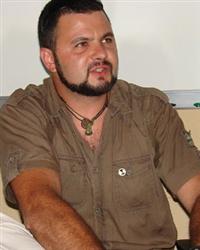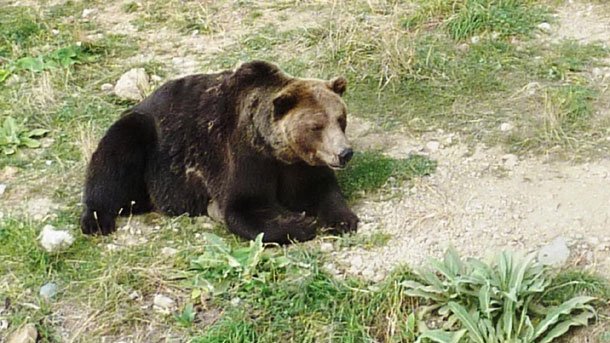There are a bit over 500 bears in Bulgaria’s mountains and this year those will have the chance to sleep without any worries. Brussels insisted on the banning of bear hunting in this country again, as the species is considered protected in Europe, due to its almost complete extinction. Bulgaria remains one of the few states, where bears do exist, although the coexistence is sometimes hard for humans. There were bear attacks on farm animals, hives and even people in the Rhodope Mountain, mainly around the town of Smolyan. Of course, the panic of the locals was skillfully used by the hunters’ lobby at the parliament, presented by the MP from the governing GERB party Emil Dimitrov, who initiated changes in the Law on Hunting and Game Protection that had been in accordance to the European directives on biodiversity till then. Despite the lack of serious scientific proofs the MPs decided that an overpopulation of brown bears existed in Bulgaria and a compulsory annual quota was necessary for the shooting of 3 to 8 percent from their overall number. Permits for the shooting of a total of 41 bears were issued after the poor 2010 law amendment. In reality only half of those have been killed – it’s not that easy to ambush a bear…
The EC was not happy with that liberal legal change and a penalty procedure kicked off against Bulgaria in April 2012 for not complying with the European legislation in the area of biodiversity protection. Experts were also scandalized by the fact that the bear was officially included in the list of hunting species. The Bulgarian parliament had to take it out of there end-2012, due to the pressure from Brussels and also being unwilling to suffer serious financial sanctions. The new amendment that complies with the EU legislation envisages shooting of bears only in extreme situations, when the animal has shown some serious aggression.

“The shooting still remains just an option, but only when there are serious reasons and I think this is the right thing to do,” Mr. Aleksander Dutsov from the Balkani Association for Protection of Wild Nature told a Radio Bulgaria reporter. The organization takes part in a project for reducing the number of bear – human conflicts. “Shooting can be allowed only in cases, when separate individuals are proven to have approached settlements at a dangerously close distance, have destroyed hives, orchards, or are no longer afraid of people and threaten their lives.”
At the same time environmentalists are not happy with the fact that another amendment from 2010 remains into force – shooting permits have been and will be issued jointly by the environmental ministry and the one of agriculture and food. This leads to distorted implementation of the emergency permits. The documents are practically used for hunting down of trophies and not for the shooting of dangerous animals. The trophies’ prices depend on the size of the bear and might reach up to EUR 20,000.
“Most cases of legal bear hunting take place via the organized hunting tourism, as predominantly foreign citizens pull the trigger,” the expert explains. “One should keep in mind that all animals, gunned down over the last couple of years were elderly males, i.e. the heaviest ones that bring the greatest profit. On the other hand it turns out that whenever there is a true problem with bears, those are most often young animals that have been separated from their mother for like 2-3 years – inexperienced youngsters, willing to make experiments. We had a recent situation in the area of Dryanovo, where a bear had stolen a pig almost from the settlement’s center. Not a single hunter could be found to shoot it down, despite the permit issued – this would have taken tracing, ambushing, observations, i.e. efforts put. It is easier to ambush a bear from the hut high in the trees, when the animal simply comes to taste the bait and to get a trophy… At the same time people continue to complain about the danger of bears…”
The institutions in charge and the respective NGOs have taken a lot of measures over the past 3 years and the damages, caused by brown bears have been really reduced. Information campaigns were carried out in the most endangered regions. Over 200 electric fences were handed in the Rhodope Mountain only. Shepherds were provided with 20 Karakachan dogs, while in the area of Smolyan – the most threatened one, were installed 200 bear-protected recycle bins. A mechanism has been acting for over ten years for compensations of the damages, caused by brown bears, as the funny thing is that the money is paid by the environmental ministry, while the revenues from the trophy hunting go to the agricultural one, Mr. Dutsov underlines.

© Photo: Maria Dimitrova-Pichot
The environmental ministry has been in charge of a monitoring of the brown bear population for a third year now. Despite the relatively short period, the results so far talk about a stable, but not increasing population of some 500 animals. I.e. there are no good reasons for the implementation of the compulsory quota for shooting. Genetic data is gathered twice a year for a more precise calculation and is processed in a German laboratory. Some of the results are quite amusing to experts.
“We wondered whether there was a good connection between the population in the Rhodope and Rila mountains and the one in the Central Balkan Range. Data has shown so far that there are bears, moving from Rhodope to the Balkan each summer to eat plums near Apriltsi in the area of Troyan and return in the autumn.”
The final decision on the monitoring results for 2012 should be taken till the end of this month by an inter-institutional commission.
English version: Zhivko Stanchev
The festive service for the consecration of the new Bulgarian Orthodox church in London is led by His Holiness Daniil , Patriarch of Bulgaria, who also officiated at the Ressurection Vespers on Saturday. Hundreds of lay people-official guests and..
The Martenitsa Festival was held in Brussels f or the third consecutive year . Cultural organizations from Bulgaria, Romania and Moldova presented their country's traditions related to the "Baba Marta" holiday, which heralds spring. The initiative..
Measurement equipment installed at the Bulgarian Antarctic base "St. Kliment Ohridski" has been collecting valuable data on solar activity and its relation to the Earth's magnetic field for two months. The research is part of Bulgaria's first polar..
Prayer served by His Holiness Bulgarian Patriarch Daniil on February 22, marks the beginning of the celebrations for the consecration of..
The festive service for the consecration of the new Bulgarian Orthodox church in London is led by His Holiness Daniil , Patriarch of Bulgaria, who also..
In the era of increased digitalization and the penetration of artificial intelligence into all spheres of our lives, the professions of people with high..

+359 2 9336 661
